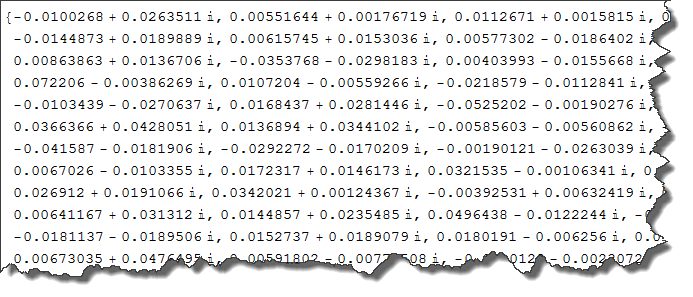I am currently using a really easy function to get the eigenvectors of a corresponding eigenspace:
Eigenspace[mat_, ev_] :=
Solve[
(mat - IdentityMatrix[Part[Dimensions[mat], 1]] * ev) .
Table[Subscript[x, i], {i, Part[Dimensions[mat], 1]}]
== Table[0, {i, Part[Dimensions[mat], 1]}
]
]
where ev is the representation of one eigenvalue $\lambda$ of the matrix $A$. So this is basically my first function I ever wrote based on the knowledge that $E_\lambda=\ker(A-I_n\cdot\lambda)$.
My example matrix is
$$C=\frac{1}{49}\cdot \left( \begin{array}{ccc} 9 & -48 & 4 \\ 36 & 4 & -33 \\ 32 & 9 & 36 \\ \end{array} \right)$$
and I can compute Eigenspace[C, 1] and get $\left\{\left\{x_1\to \frac{x_3}{2},x_2\to -\frac{x_3}{3}\right\}\right\}$ and I do substitute $x_3$ as it is a free parameter with Eigenspace[C, 1] /. Subscript[x, 3] -> 1 and get $\left\{\left\{x_1\to \frac{1}{2},x_2\to -\frac{1}{3}\right\}\right\}$.
How can I now return with my function the appropriate eigenvector $(1/2,\;-1/3,\; 1)^T$?




